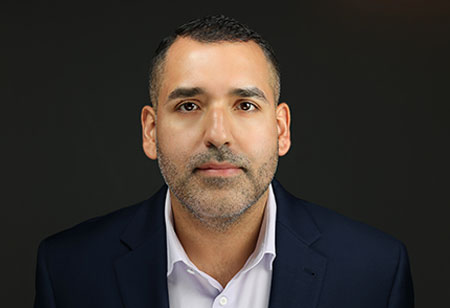Thank you for Subscribing to Healthcare Business Review Weekly Brief

Transforming Rehabilitation Through Patient-Centered Leadership
Healthcare Business Review
Christian Alvarez is a healthcare leader focused on advancing clinical operations and improving access to community-based rehabilitation. He oversees hospital and outpatient rehabilitation programs for Hartford HealthCare and emphasizes collaborative leadership, transparency, and frontline engagement. With a people-centered approach, Alvarez builds high-performing teams and fosters cultures of accountability, inclusion, and continuous improvement.
In this interview, Alvarez shares how he builds strong teams, fosters adaptability, and sustains a culture rooted in patient-centered care at Hartford HealthCare.
Pathway to Leading Rehabilitation Services
I came to appreciate healthcare, and especially rehabilitation, early in my life. Growing up with severe asthma meant spending a lot of time in emergency departments and doctors’ offices. Once my condition came under control, I became active in sports, and that was where I first experienced rehabilitation after a severe ankle sprain that required three months of therapy. Watching therapists help people, including me, regain their abilities and return to meaningful activities left a lasting impact. I could picture myself in that kind of environment, assisting others to do the same.
When it was time to choose a career, I decided to pursue occupational therapy and completed my master’s degree at Quinnipiac University. My passion for helping others naturally grew into leadership. As a team captain in football, lacrosse and wrestling, I often stayed after practice to help teammates improve. That same spirit carried into my career, where I supported colleagues, volunteered for new responsibilities and gradually moved into leadership roles. Today, I continue that journey at Hartford HealthCare, leading teams with the same focus on teamwork, growth and service that first drew me to this field.
Helping Others as a Way To Lead
My approach to rehabilitation leadership is to lead by serving others and building trust. It comes from my upbringing and my desire to help people. I see leadership as a way to support my team, not just to manage them. My role is to understand what matters most to them, set clear goals, and be open about expectations so everyone feels connected and confident in their work. Building trust early has helped me create teams that work with purpose and care.
To guide teams through change, you must first establish that initial trust and transparency.
Change is constant, especially in healthcare. Rules and methods continue to evolve, and new tools are introduced every year. To guide teams through change, I focus on honesty, clear communication, and teamwork. When people understand why change is happening and have a chance to share their ideas, they adapt with confidence. Many of the best improvements come from colleagues who work directly with patients. By including them, we make changes that truly improve care. Whatever changes take place, every decision should be rooted in patient-centered care, ensuring that the patient remains our constant priority and purpose.
Creating A Supportive Learning Environment
The learning environment is key to successfully implementing any change, whether it is a new tool, process or protocol. It is essential to allocate time and space to present information clearly and concisely, which is easy to absorb. This might involve setting aside non-patient care time to discuss the change, answer questions and review expectations. Providing standardized tools and competency checklists ensures everyone understands what proficiency looks like and what is expected.
When people understand why a change is being made, they are more likely to support it, stay motivated, and move forward together. After rollout, regular check-ins at two weeks or thirty days help gauge how the team is adapting. Having resource champions or escalation processes enables staff to seek help when needed. Recorded demonstrations or online modules, such as those through HealthStream, further support self-learning. Visible resources, simple instructions and tools like QR codes make it easy for staff to revisit materials and stay confident during transitions.
Making Change Easier To Embrace
The most crucial step in helping a team adapt to change is explaining why it is happening and ensuring that every change has a clear purpose and benefit. Any change can create stress because it disrupts what feels familiar. When people understand the reason behind it, that stress becomes easier to manage.
For example, if staff members are told they have new laptops without explanation, their first reaction may be anxiety. But if they know the change will solve system slowdowns or documentation issues and that training and gradual implementation will follow, it becomes more manageable.
Creating an environment where colleagues can raise concerns, share ideas, and take part in improvements builds ownership and trust. When people collaborate on shaping solutions, they gain confidence in the outcome and work together more effectively through change. Therapists already practice adaptability every day as they help patients adjust to challenges and function between treatment and complete recovery. Applying that same mindset to teamwork helps everyone see change not as a disruption but as an opportunity to grow, learn, and succeed together.
Building a Culture of Trust and Inclusion
It starts with culture, and the best foundation for any strong culture is trust and transparency. When leaders approach daily operations with honesty and openness, teams feel valued and included.
Providing colleagues with the opportunity to participate in change and contribute to departmental growth helps them feel invested in the outcome. When that sense of ownership exists, teams are more adaptable, resilient, and ready to succeed together, regardless of changes in the healthcare environment.









